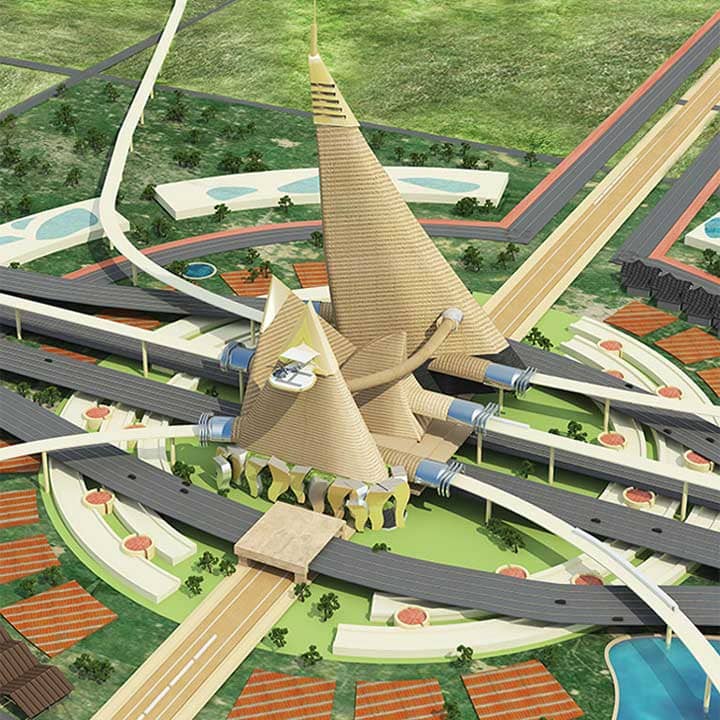Introduction
Tata Group, a key player in India’s semiconductor sector, is expanding its footprint by seeking 80 acres of land in Dholera Special Investment Region (SIR). This move aligns with the company’s plans to establish a world-class semiconductor fabrication facility, enhancing India’s self-reliance in chip manufacturing. The proposed site will bolster Tata’s efforts to meet the growing demand for advanced electronics and semiconductor technology. This development further positions Dholera as a rising hub for high-tech industries and global investments.
Dholera Semiconductor Hub: Tata Group Seeks 80 Acres for Growth
India’s semiconductor industry is set to receive a significant boost as Tata Group, a leading conglomerate in the country’s tech and industrial sectors, moves ahead with plans to establish a state-of-the-art semiconductor fabrication facility in Dholera Special Investment Region (SIR). The company has sought 80 acres of prime land to develop this project, reinforcing India’s ambition to become a global semiconductor manufacturing powerhouse.
Strategic Expansion for Semiconductor Manufacturing
The Tata Group’s decision to seek 80 acres in Dholera is a part of its long-term strategy to establish a robust semiconductor ecosystem in India. This move aligns with the Indian government’s “Make in India” and “Atmanirbhar Bharat” initiatives, which aim to reduce reliance on imported chips and strengthen domestic chip production capabilities. With the demand for semiconductors rising globally, Tata’s entry into this sector positions India as a competitive player in the high-tech manufacturing landscape.
Why Dholera SIR is Ideal for Tata Group’s Expansion
Dholera SIR, located about 100 km southwest of Ahmedabad, is emerging as a preferred destination for high-tech industries and global investments. The region offers:
- Strategic Location: Proximity to major transportation corridors and ports enhances supply chain efficiency.
- World-Class Infrastructure: Dholera SIR provides reliable power, high-speed connectivity, and robust logistics infrastructure essential for semiconductor manufacturing.
- Government Incentives: Attractive subsidies, tax benefits, and policy support make Dholera a favorable choice for large-scale industrial investments.
Boosting India’s Self-Reliance in Semiconductors
Tata Group’s semiconductor facility in Dholera is expected to play a pivotal role in reducing India’s dependence on semiconductor imports. The proposed fab will not only cater to the growing demand for semiconductors in sectors such as automotive, telecommunications, and consumer electronics but also support India’s ambitions to become a global hub for semiconductor production.
Driving Technological Advancement and Economic Growth
The establishment of Tata’s semiconductor fab is anticipated to:
- Create Thousands of Jobs: Generating employment opportunities for engineers, technicians, and skilled labor.
- Promote Skill Development: Enhancing India’s workforce with advanced semiconductor expertise.
- Attract Global Investments: Positioning Dholera as a prime location for technology-driven industries and multinational corporations.
Strengthening India’s Position in Global Supply Chains
With the global semiconductor market witnessing rapid growth, Tata’s investment in Dholera places India firmly on the map as an emerging hub for semiconductor manufacturing. The facility will contribute to strengthening India’s role in global supply chains and enhancing its competitiveness in the technology sector.
Conclusion: A Game-Changer for India’s Semiconductor Ambitions
Tata Group’s decision to seek 80 acres in Dholera for a semiconductor fab marks a transformative step towards India’s goal of achieving semiconductor self-sufficiency. This project not only advances the country’s technological capabilities but also drives economic growth by attracting global investments and fostering innovation. As Dholera evolves into a hub for high-tech industries, Tata’s initiative is poised to shape the future of India’s semiconductor ecosystem and pave the way for a more self-reliant and technology-driven economy.


